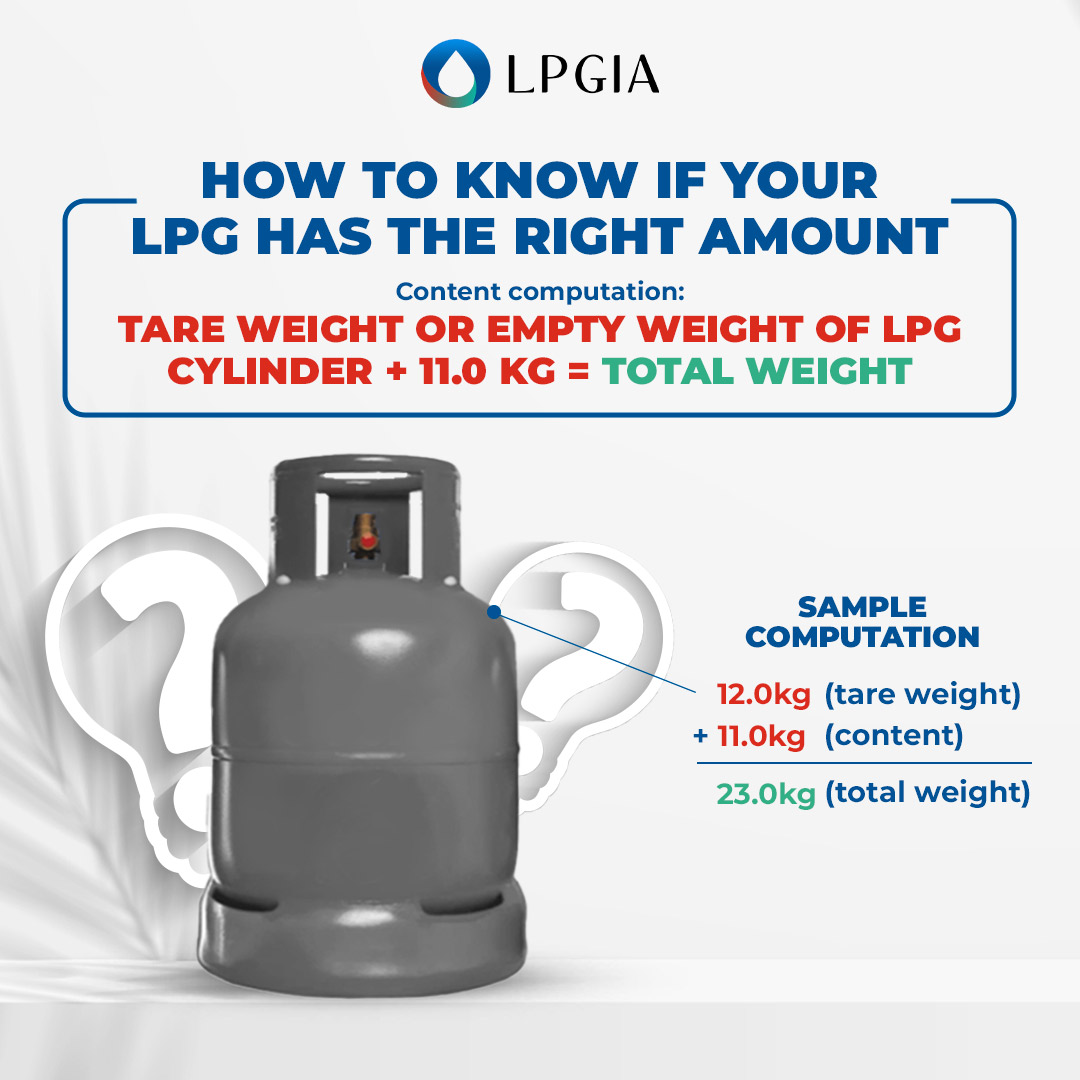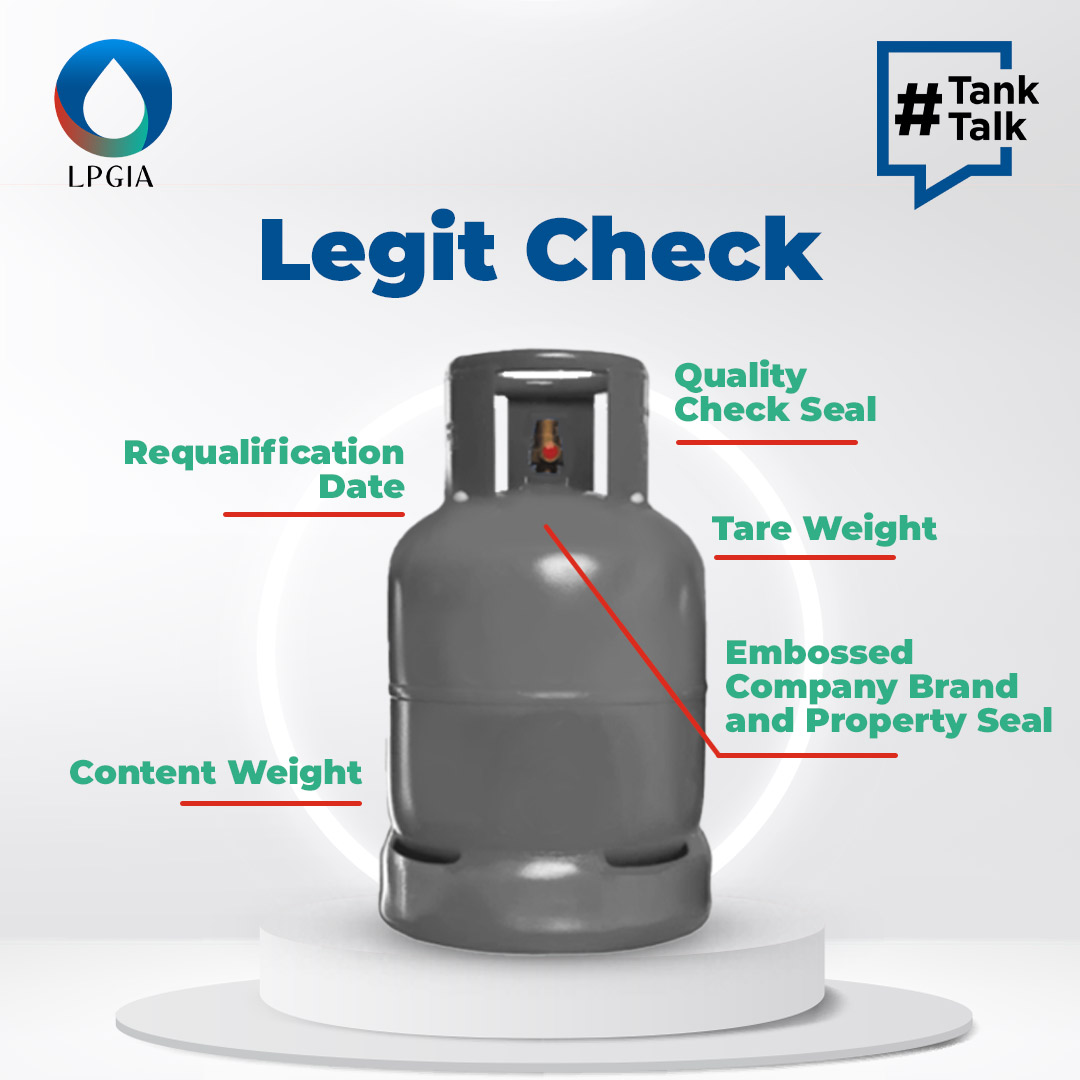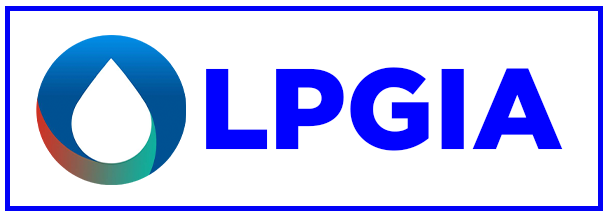The LPG Industry Regulation Act was enacted to uphold the standards and excellence of the LPG industry and to ensure the safety of Filipino consumers. It also seeks to promote awareness on the proper use of LPG vessels, uphold the right of end-consumers, as well as be at the forefront of innovation.
- A trademark owner is any duly authorized person owning a duly registered, valid, and existing trademark or trade name with the Intellectual Property Office of the Philippines pursuant to Republic Act No. 8293, otherwise known as “Intellectual Property Code of the Philippines”
- A dealer is any duly authorized person who is engaged in trading or sales of LPG cylinders to retail outlets or directly to consumers.
- A refiller is a service provider authorized by the trademark owner to refill LPG cylinders on the latter’s behalf, or any trademark owner which refills LPG into its own LPG cylinders.
- A bulk distributor is any duly authorized person who purchases LPG in bulk in tankers, barges, or tank truck trailers from bulk suppliers, and who supplies the same to refillers or bulk consumers.
- A hauler is any duly authorized person who transports, distributes, and delivers LPG in cylinders and cartridges, and bulk LPG through the use of authorized motor vehicles.
- Engaging in LPG-related activities without required licenses, permits, and certificates.
- Engaging in the following prohibited activities with or as an unauthorized person: (1) transacting with a participant without a required license, certificate, clearance, permits, (2) manufacturing, distributing, refilling, or selling LPG cylinders carrying a trademark or tradename without the approval of the trademark owner, (3) selling, exchanging, bartering, distributing, transferring or possessing of empty LPG cylinders by any LPG industry participant other than the trademark owner or without its consent outside the Cylinder Exchange and Swapping Program, and (4) possessing LPG seals without authority from the trademark or trade name owner.
- Failing to comply with the standards, requirements and guidelines on safety design, practices, LPG, measuring devices.
- Engaging in activities involving LPG and LPG pressure vessels that are noncompliant with the standards, requirements, and guidelines under this act.
- Failing to comply with the responsibilities as an LPG industry participant.
- Engaging in: (1) Destroying, tampering, altering, or modifying LPG tanks or pressure vessels
Violations
Section 40
Illegal Refilling:
- Filling or refilling of LPG pressure vessels with products
or substances other than LPG in an effort to achieve the
correct net weight - Filling or refilling of LPG cylinders directly from LPG bulk
storage tank trucks - Unauthorized cross-filling
- Refilling of LPG from one LPG cylinder to another cylinder
- Refilling of LPG cylinders other than in duly licensed LPG
refilling plants - Refilling of LPG cylinders: a. Bearing defaced, tampered, or
illegible markings contrary to the mandatory labeling and
stamping requirements under this Act b. Noncompliant with
the PNS c. Due for repair, requalification or scrappage, or
are subject to a recall or prohibition order of the DOE or
DTI d. By auto-LPG dispensing stations - Unauthorized loading of LPG bulk storage tanks
- Any other filling or refilling of LPG pressure vessels in
violation of the requirements and standards under this Act
Penalties
First Offense: Administrative penalties of fine
amounting to a minimum of Twenty-five thousand pesos
(₱25,000.00) for every LPG pressure vessel or seal and
confiscation of said LPG pressure vessel or seal: Provided, That
in the case of broken seals, the fine shall be a minimum of One
thousand pesos (₱1,000.00) for every LPG cylinder. In the case
of illegal refilling, upon conviction, the criminal penalty
shall be imprisonment of six to twelve (6-12) years,
Second Offense: Administrative penalties of
fine amounting to a minimum of Fifty thousand pesos (₱50,000.00)
for every LPG pressure vessel or seal, confiscation of said LPG
pressure vessel or seal, and suspension of license to operate.
Upon conviction, criminal penalty of imprisonment for at least
one (1) year but not more than three (3) years. In the case of
broken seals, the administrative penalty of fine shall be a
minimum of Four thousand pesos (₱4,000.00) for every LPG
cylinder and there shall be no criminal penalty. In the case of
illegal refilling, upon conviction, the criminal penalty shall
be imprisonment of six to twelve (6-12) years,
Third Offense: Administrative penalties of fine
amounting to a minimum of One hundred thousand pesos
(₱100,000.00) for every LPG pressure vessel or seal,
confiscation of said LPG pressure vessel or seal, closure, and
permanent disqualification from engaging in any activity as an
LPG industry participant. Upon conviction, the criminal penalty
of imprisonment for at least three (3) years and one (1) day but
not more than six (6) years. In the case of broken seals, the
administrative penalty of fine shall be a minimum of Eight
thousand pesos (₱8,000.00) for every LPG cylinder and there
shall be no criminal penalty. In the case of illegal refilling,
upon conviction, the criminal penalty shall be imprisonment of
six to twelve (6-12) years.
Engaging in activities without the required license, permits, and
certificates:
- Engaging in activity without a valid license from the DOE ,
whichever is applicable, business permit and other required
licenses and certificates issued by relevant agencies.
First Offense: Administrative penalty of a
minimum of ₱5,000 for each day of operation without the required
license permit ,certificate or registration.
Second Offense:
Administrative penalty of minimum ₱10,000 for each day of
operation without the required license permit , certificate or
registration.
Third Offense: Administrative penalty of
minimum ₱20,000 for each day of operation without the required
license, permit, certificate or registration.
Engaging in activities without the required license, permits, and
certificates:
- Manufacturing and repairing of LPG pressure vessels,
manufacturing of LPG seals, and requalifying without a valid
license, permit, or other required licenses and certificates
from the DTI.
First Offense: Administrative penalties of fine
minimum of ₱25,000 for every LPG pressure vessel or seal;
confiscation of pressure vessels or seals
Second Offense:
Administrative penalties of fine amounting to ₱50,000 for every
pressure vessel or seal and suspension of license to operate .
Upon conviction criminal penalty of imprisonment for at least
one (1) year, but not more than three (3) years.
Third Offense: Administrative penalties of
₱100,000 for every pressure vessel or seal; confiscation,
closure, and permanent disqualification from engaging in any
activity as na LPG Industry participant. Upon conviction
criminal penalty of imprisonment for at least three (3) years
and 1 day, but not more than six (6) years.
following acts shall constitute underfilling of LPG pressure
vessels:
- The refiller: when the net quantity of LPG in the LPG
pressure vessel (sold, transferred, delivered, or filled) is
less than the required content. - The dealer or retail outlet: when the net quantity of LPG in
the LPG tank is less than the required content.
If applicable, a broken, tampered, absent, removed seal, or the LPG
Tank does not have the proper seal attached.
First Offense: Administrative penalty of a fine
amounting to a minimum of ₱20,000 per LPG tank. Upon conviction,
the criminal penalty of imprisonment of six (6) to twelve (12)
years.
Second Offense: Administrative penalty of
₱30,000 for every LPG tank, closure , and permanent
disqualification from engaging in any activity as an LPG
Industry participant. Upon conviction, criminal penalty of
imprisonment of six (6) to twelve (12) years.
design and requirements, permits, and clearances of motor vehicles
transporting LPG in bulk and LPG Cylinders and cartridges.
First Offense: Administrative penalty of fine
amounting to a minimum ₱300,000. For retail outlets, minimum
fine shall be ₱10,000
Second Offense: Administrative penalty
amounting to ₱500,000 and suspension of License to Operate.
Provided fine for retail outlet shall be minimum of ₱20,000.
Upon conviction, criminal penalty of imprisonment of at least
one (1) year, but not more than three (3) years.
Third Offense: Administrative penalty of
₱1,000,000, closure and permanent disqualification from engaging
in any activity as an LPG industry participant. For retail
outlets, the fine shall be minimum of ₱30,000. Upon conviction,
criminal penalty of imprisonment of at least three (3) years and
one (1) day, but not more than six (6) years.
You can check your tanks weight by using this formula:

Check for the quality check seal. If certified, your tank should have a requalification date (that is not overdue), and an embossed company brand and property seal. It should also include the tare weight and content weight.

Uncertified cylinder tanks under circulation fall under three categories: (1) cylinders that were manufactured by a non-licensed company, (2) cylinders that do not comply with the Philippine National Standards (PNS), and (3) cylinders already in circulation but missed requalification after the required period.
Substandard tanks are also known as ‘scrapped cylinders.’ It may be rusty, has dents, or collar plate and foot ring may not be in good condition.
Upon purchase, there should be a receipt which indicates the details of your transaction. You are entitled to a refund or you can have it swapped or exchanged with a certified tank.
In case you encounter or purchase an uncertified tank, you are entitled to return it to the retailer and get a refund.
Upon purchase, there should be a receipt which indicates the details of your transaction. You are entitled to a refund or you can have it swapped or exchanged.
It is mandated that the following guidelines should be followed in using LPG delivery vehicles:
- Use a stake body truck, which is a vehicle with metal grill body.
- The tanks should be placed in an LPG compartment separate from the driver.
- Binding belts should be durable and secure so the tanks stay in place.
The use of enclosed vehicles is strictly prohibited.
